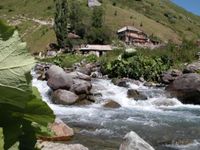Statement of the Ministry of Foreign Affairs of Republic of South Ossetia
In the meantime even before the end of the election procedure the EU High Commissioner for Foreign Affairs and Security Policy Catherine Ashton, meaning elections in South Ossetia, stated that “the European Union does not recognize constitutional and legal frames of the elections that took place”. In the same tone was made statement of the NATO General Secretary. It can seem paradoxical by Brussels, refusing to recognize elections in countries where people can vote freely in full compliance with the international standards, can ‘recognize elections’ and ‘triumph of democracy’ in countries where dissidence is suppressed, where persecution and massive killings of people for their political beliefs take place, where violation against unwanted candidates is common, where voting is taking place under the sound of shelling by which those who appropriated power try to deafen the protest voices.
Position voiced by the Head of EU diplomacy, aimed to support claims on territories that do not belong to Georgia, contradicts fundamentals of democracy and international standards recognized as civil and political rights of people and nations, that allow each country to organize its internal affairs freely and independently. The right to elect and be elected is one of the fundamental human rights which observance and protection is the main aim of a state and international community.
One can only regret that comments made by the EU High Commissioner for Foreign Affairs and Security Policy on elections in independent states do not reflect the reality but stand for biased, politicized position that discredits the ability of Brussels to be an unbiased mediator or an established expert on democratic procedures and political rights.
South Ossetia will continue to strengthen its sovereignty and democratic statehood regardless the opinion and characterizations made by its foreign ‘well-wishers’.
Tskhinval, 9 June 2014

